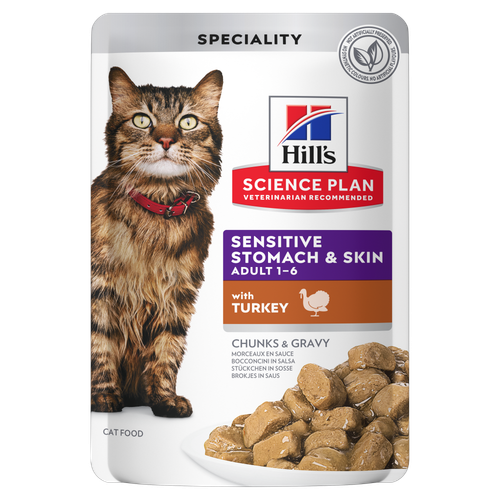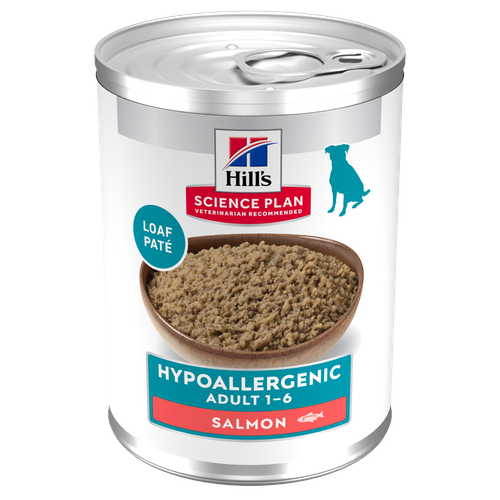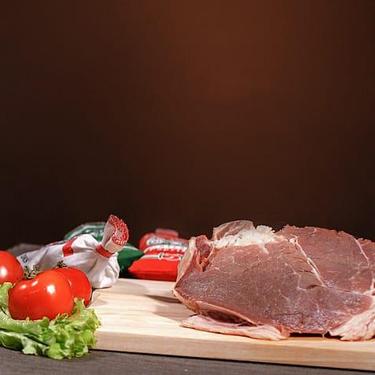
-
Find the right food for your petTake this quiz to see which food may be the best for your furry friend.Find the right food for your petTake this quiz to see which food may be the best for your furry friend.Featured products
 Mature Adult Dog Food
Mature Adult Dog FoodHill's Science Plan Mature Adult Multipack Wet Dog Food with Chicken & Beef are complete premium pet foods for mature adult dogs from 7 years. Your dog will love these deliciously smooth and savoury minced loaves, formulated to deliver the appropriate amount of energy to support the needs of adult dogs.
Shop Now Adult Wet Dog Food with Beef
Adult Wet Dog Food with BeefHill's Science Plan Adult Multipack Wet Dog Food with Chicken, Beef & Turkey are complete premium pet foods for adult dogs from 1 year. Your dog will love these deliciously smooth and savoury minced loaves, formulated for balanced nutrition and overall health.
Shop Now Puppy Food
Puppy FoodHill's Science Plan Puppy Multipack Wet Dog Food with Chicken & Beef are complete premium pet foods for growing puppies from weaning until 1 year old and for pregnant and nursing dogs. Your puppy will love these deliciously smooth and savoury minced loaves, formulated for balanced nutrition and overall health.
Shop NowFeatured products Hairball & Perfect Coat Adult Dry Cat Food with Chicken
Hairball & Perfect Coat Adult Dry Cat Food with ChickenHill's Science Plan Hairball & Perfect Coat Adult Cat Food with Chicken is formulated to effectively help avoid hairball formation in adult cats while promoting a beautiful coat. Thanks to its mix of essential omega-6 fatty acids, this food benefits the cat's skin and fur, keeping them healthy and shiny. Our Advanced Fibre Technology helps reduce hairballs by naturally promoting their passage through the gut. This food is formulated with high-quality protein for a perfectly balanced, great-tasting recipe.
Shop Now Sensitive Stomach & Skin Adult Cat Food
Sensitive Stomach & Skin Adult Cat FoodHill's Science Plan Sensitive Stomach & Skin Adult Wet Cat Food with Turkey is a complete pet food for adult cats, aged 1–6 years. This highly digestible wet food comes in a pouch and supports healthy digestion, as well as nourishes skin and promotes a thick and lustrous coat.
Shop Now Sterilised Adult Cat Food
Sterilised Adult Cat FoodHill's Science Plan Adult Sterilised Cat Dry Food with Salmon is specially formulated with ActivBiome+ Multi-Benefit Technology. It is a precisely balanced nutrition, tailored to meet the needs of sterilised cats, to help keep them lean & healthy.
Shop Now -
Dog
- Dog Tips & Articles
-
Health Category
- Weight
- Food & Environmental Sensitivities
- Urinary
- Digestive
- Joint
- Kidney
-
Life Stage
- Puppy Nutrition
- Adult Nutrition
- Senior Nutrition
Cat- Cat Tips & Articles
-
Health Category
- Weight
- Skin & Food Sensitivities
- Urinary
- Digestive
- Kidney
-
Life Stage
- Kitten Nutrition
- Adult Nutrition
Featured articles Show some love with wet foods: a great choice for pets with health issues
Show some love with wet foods: a great choice for pets with health issuesShow some love with wet foods: a great choice for pets with health issues.
Read More The Right Diet For Your Pet
The Right Diet For Your PetIn people, the right diet is very important. If you are eating the wrong way for your metabolism, activity level, age and lifestyle you could end up with health issues.
Read More The Incredible Science Behind Your Pet's Microbiome
The Incredible Science Behind Your Pet's MicrobiomeLearn what your pet's microbiome is, how it contributes to your pet's gut and overall health, and why nutrition is important in maintaining healthy microbiomes.
Read More -


Much like humans, dogs can taste–and enjoy–a variety of different flavours, according to The Dogs Trust, but the similarities may stop there. Dogs appear to be able to discern specific tastes in water, perhaps explaining why they don't seem to get bored of the liquid that humans sometimes describe as "flavourless."
But do dogs taste the same flavours in the same way people do? It would seem, since they're known for eating nonfood objects and sifting through rancid garbage and other unmentionables, that they may not. But this could be due to the fact that while dogs' taste buds can detect the same kinds of flavours ours do, they have significantly fewer taste buds on their tongues. As PetMD notes, humans have around 9,000 while dogs have only about 1,700. So, curious what your dog might like best to eat, be it chicken vs. beef, warm vs. cold or wet vs. dry dog food? And how do we even know if dog food tastes good to dogs? Let's explore some of the food types and factors your dog's palate may prefer.
Factors Affecting How Your Dog's Food Tastes
- Flavours: According to a survey presented by Pet Food Industry, chicken is the most popular dog food flavour worldwide. Of course, this may not be because it is the canine preference but instead could be because chicken is widely available as far as protein sources for dog food go. Before purchasing a large bag of dog food, it may be wise to source samples from your veterinarian or pet food store. For canned and pouches of food, you can get a few single servings to ensure your dog enjoys that particular dog food taste before going all in.
- Texture/Formulation: When it comes to texture, dogs prefer softer and chewier foods, though most dogs will not snub their nose at any single texture. While some dog parents report they have the snootiest of eaters, this is thought to be because the dog has subversively trained the owner to offer the tastiest — and not always the healthiest — of delicacies rather than a true food aversion. Mixing wet food in with dry food is a winning combination for some picky eaters.
- Temperature: Cook's Illustrated explains that scientists have learned that human taste buds are quite temperature-sensitive and work far more efficiently when foods are consumed at warm temperatures. This explains people's general preference for heated-up foods (though cold pizza for breakfast remains an outlier). While this study focuses on humans, the logic should hold up for our canine family members, who also often prefer their food slightly warmed. It can't hurt that scent molecules are released from foods at higher temperatures, further increasing the appeal. And while we have far more taste buds than dogs, they can smell anywhere from 1,000 to 10,000 times better than humans, according to VCA Animal Hospitals.
- Supplements and Toppers: While liquid supplements, gravies or powder toppers have their place on store shelves, vets aren't quick to endorse these products because of their sparse oversight and regulation. In some cases, such as when a dog is known to have a chronic disease, such as kidney failure, topping food with a savoury gravy might be the only way to keep them eating. It's important to note that nutrient excesses can be as harmful as deficiencies, so if you sense that it's becoming essential to use additives to ensure your dog eats, it's time to get a vet's guidance to make sure there aren't other medical concerns.
Other Questions to Ask Your Vet About Your Dog's Food
There are several questions to ask your vet to help you select the healthiest and tastiest food for your dog. While most dog parents will ask these questions at a new puppy appointment, it's important to keep this conversation going over the years, through health and sickness. Here are some guideline questions:


Tasty Tips
- Does my dog like how their food tastes?
- Do you have any specific food recommendations based on my dog's lifestyle or future health risks?
- Is there any indication for a dietary change based on lab findings or a physical exam, such as being over- or underweight?
- Does my dog have any skin conditions? Dental concerns? Gastrointestinal or urinary problems?
- Does my dog have any food allergies?
So Does My Dog Really Like How Their Food Tastes?
There is no need to stress over flavours or wet vs. dry dog food. Usually, your dog will like how their food tastes. Don't forget to bring in the expert and consult your vet for guidance on selecting the best dog food since flavour isn't the only way to your dog's heart. High-quality and balanced meal options are crucial for your dog's long and healthy life, but time together and shared memories are the real keys to your pooch's happiness.


Dr. Laci Schaible is a small animal veterinarian, veterinary journalist, and a thought leader in the industry. She received her Doctor of Veterinary Medicine from Texas A&M University and her Masters in Legal Studies from Wake Forest University.
Related products

Hill's Science Plan Puppy Multipack Wet Dog Food with Chicken & Beef are complete premium pet foods for growing puppies from weaning until 1 year old and for pregnant and nursing dogs. Your puppy will love these deliciously smooth and savoury minced loaves, formulated for balanced nutrition and overall health.

Hill's Science Plan Hypoallergenic Adult Wet Dog Food with Salmon is a complete premium pet food for all adult dogs from 1 year. This savoury tinned loaf is specially formulated for dogs with delicate skin and stomachs. It features a single novel animal protein source and is grain-free.

Hill's Science Plan Mature Adult Multipack Wet Dog Food with Chicken & Beef are complete premium pet foods for mature adult dogs from 7 years. Your dog will love these deliciously smooth and savoury minced loaves, formulated to deliver the appropriate amount of energy to support the needs of adult dogs.

Hill's Science Plan Adult Multipack Wet Dog Food with Chicken, Beef & Turkey are complete premium pet foods for adult dogs from 1 year. Your dog will love these deliciously smooth and savoury minced loaves, formulated for balanced nutrition and overall health.
Related articles

Many human foods are dangerous to dogs. Read about 5 of the worst toxic food offenders that can kill your dog - and how much it takes to hurt them.

How, when and what to feed your new puppy is an important decision, learn more about the things to consider for feeding your puppy.

Learn effective tips for feeding a dog that's a picky eater and ensure proper nutrition for a finicky eater. Discover tips for pet parents at Hill's Pet UK.

Learn about the potential health risks of a raw diet for dogs and why they aren't the best option for your pup or you.

Put your dog on a diet without them knowing
Our low calorie formula helps you control your dog's weight. It's packed with high-quality protein for building lean muscles, and made with purposeful ingredients for a flavourful, nutritious meal. Clinically proven antioxidants, Vitamin C+E, help promote a healthy immune system.
Put your dog on a diet without them knowing
Our low calorie formula helps you control your dog's weight. It's packed with high-quality protein for building lean muscles, and made with purposeful ingredients for a flavourful, nutritious meal. Clinically proven antioxidants, Vitamin C+E, help promote a healthy immune system.

